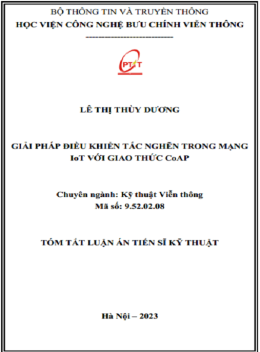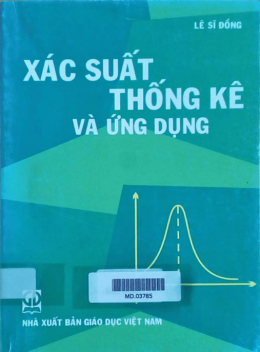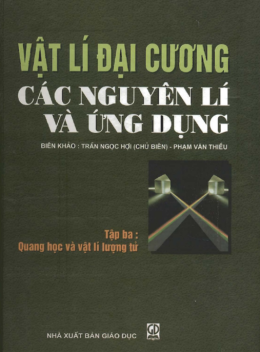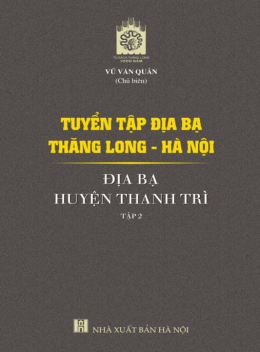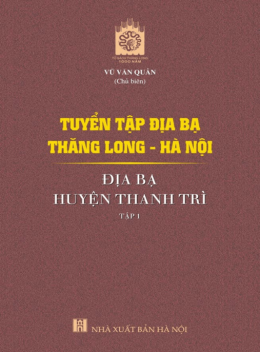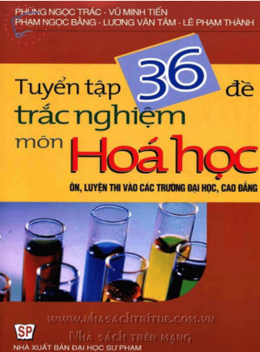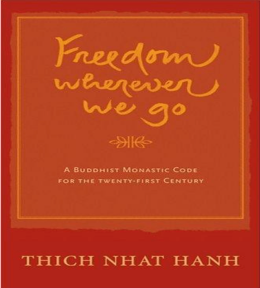
Thich Nhat Hanh Freedom Wherever We Go A Buddhist Monastic Code For The 21st Century – Web Tải Sách Miễn Phí Ebooks PDF
Giới thiệu & trích đoạn ebook
Sách Thich Nhat Hanh Freedom Wherever We Go, A Buddhist Monastic Code for the 21st Century của tác giả Thích Nhất Hạnh mời bạn thưởng thức.
OPENING THE CEREMONY
Namo Tassa Bhagavato Arahato Samma Sambuddhassa
Namo Tassa Bhagavato Arahato Samma Sambuddhassa
Namo Tassa Bhagavato Arahato Samma Sambuddhassa
[Bell]
The Vinaya is deep and lovely.
We now have a chance to see, study, and practice it.
We vow to realize its true meaning. [Bell]
IN THE PRESENCE of the Buddhas, the precious Dharma, and the Mahasangha we bow our heads. Today we shall recite the Pratimoksha so that the true teachings can remain in the world for a long time. The precepts are like the ocean. One lifetime alone is not enough to study and practice them. The precepts are like precious treasures. We never grow tired in their pursuit.
It is because we want to protect our sacred inheritance of the true teachings that we have gathered today to hear the recitation of the precepts. We have gathered as a Sangha to recite the precepts because we do not want to transgress the Four Degradation Offenses, the Twenty-seven Sangha Restoration Offenses, the Thirty-two Release and Expression of Regret Offenses, the One Hundred and Ten Expression of Regret Offenses, the Seventy Fine Manners Offenses, and the Seven Ways of Putting an End to Disputes. The Buddhas Vipashyin, Shikhin, Vishvabhu, Krakucchanda, Kanakamuni, Kashyapa, and Shakyamuni have devised these precepts for us to practice.
Let us receive, study, protect, and enrich them with the greatest respect, so that the Pratimoksha becomes more and more appropriate to our time, always maintaining the lifeblood of the true teachings. Now I will recite the Pratimoksha for the whole Sangha to hear.
Someone who is lame is not able to walk very far. The same is true of someone who transgresses the precepts. He cannot progress on the spiritual path. If we wish to go forward on the path of transformation, healing, and awakening we should practice the precepts wholeheartedly. The one who has not observed the precepts will become anxious. He is like a carriage on a rough and uneven road that will easily lose its axle-pin and the axle will be broken.
Reciting the precepts is like looking into a clear mirror to see ourselves. If the image is beautiful, we are happy; if it is ugly, we worry. If our precepts’ body is clear, we are happy. If it is damaged, we worry. Reciting the precepts is like joining battle. If we are courageous we will go forward, if we are afraid we will run away. When our precepts’ body is clear, we are confident and at peace. When it is damaged, we are anxious. In a truly democratic society, the people hold the highest position. On the Earth, the ocean is vaster than all lakes and rivers. Among the Holy Ones, the Buddha has the highest awakening. Of all spiritual laws and regulations, the Vinaya is the highest. The Buddha has devised the Pratimoksha for us to recite once every two weeks. [Bell]
Sanghakarman Procedure
SANGHAKARMAN MASTER: Has the whole community of bhikshus assembled?
SANGHA CONVENER: The whole community of bhikshus has assembled.
SANGHAKARMAN MASTER: Is there harmony in the community?
SANGHA CONVENER: Yes, there is harmony.
SANGHAKARMAN MASTER: Have those who have not yet received the bhikshu ordination already left?
SANGHA CONVENER: Those who have not yet received the bhikshu ordination have already left.
SANGHAKARMAN MASTER: Is there anyone who is absent, has asked to be represented, and has sent word that he has kept the precepts?
SANGHA CONVENER: No, there is not.
[In the case that someone is absent, we should say: Bhikshu ____________________ because of health reasons is not able to be present at the recitation. He has asked Bhikshu _____________________ to represent him and sends word that he has kept the precepts.]
SANGHAKARMAN MASTER: Has a representative of the Bhikshuni Sangha been sent today to request teachings?
SANGHA CONVENER: [One can either reply: Yes, Bhikshuni ____________________ has been sent or No, no one has been sent.]
SANGHAKARMAN MASTER: Why has the community assembled today?
SANGHA CONVENER: The community has assembled today to realize the Sanghakarman Procedure of reciting the Pratimoksha.
SANGHAKARMAN MASTER: Noble Sangha of Bhikshus, please listen. Today, ____________________ in the year ____________________ has been declared to be the Precepts’ Recitation day. The Sangha has gathered at the appointed time and is ready to recite the precepts in a spirit of harmony. Thus the recitation is in accordance with the Vinaya. Is the announcement of the Sanghakarman Procedure realized?
THE SANGHA: Realized.
[Bell]
Introduction to the Recitation of the Bhikshu Precepts
SANGHAKARMAN MASTER: Venerable Bhikshus, I am about to recite the Bhikshu Pratimoksha. Please listen attentively and examine yourself with care. If you know that you have broken any one of the precepts, you should admit your offense. If you have not broken a precept you should remain silent. If you are silent it means that your precepts’ body is clear. If anyone asks you at a later time, you should reply as you have replied today. During this recitation if you have broken a precept and, having been asked three times, you do not say so, you commit the offense of deliberately telling a lie. According to the teaching of the Buddha, deliberately lying is an obstacle to the realization of the path of liberation. If you are aware that you have broken a precept and you wish your precepts’ body to be clear again, you need to admit your offense, express regret, and begin anew, and after having done so you will be at peace.
Venerable Bhikshus, I have finished reading the introduction to the Pratimoksha.
Now I am asking you: In our community of bhikshus, is everyone’s precepts’ body clear?
[The question is asked three times.]
The Venerable Bhikshus have remained silent. Therefore we know that in the Sangha everyone’s precepts’ body is clear. Let us be aware of this, recognize it, and give it our approval. [Bell]
RECITATION
Degradation Offenses (Parajika)
Venerable Bhikshus, these are the four major precepts, called Degradation Offenses (Parajika), to be recited once every two weeks.
THE FIRST PRECEPT:
A bhikshu who has sexual intercourse with another person, whether female or male, and whether that person has given consent or not, breaks the first of the Four Degradation Offenses, is no longer worthy to remain a bhikshu, and cannot participate in the activities of the Bhikshu Sangha.
THE SECOND PRECEPT:
A bhikshu who steals or violates the property of another, whether that property is privately or publicly owned, and if the value of the property is significant enough that he could be taken to court, breaks the second of the Four Degradation Offenses, is no longer worthy to remain a bhikshu, and cannot participate in the activities of the Bhikshu Sangha.
THE THIRD PRECEPT:
A bhikshu who takes the life of another person by deed, word, or intention, breaks the third of the Four Degradation Offenses, is no longer worthy to remain a bhikshu, and cannot participate in the activities of the Bhikshu Sangha.
Sách liên quan

Donate Ủng hộ chúng tớ 1 ly cafe
Nhằm duy trì website tồn tại lâu dài và phát triển, nếu bạn yêu thích Taiebooks.com có thể ủng hộ chúng tớ 1 ly cafe để thêm động lực nha.
Bạn cần biết thêm lý do để ủng hộ Taiebooks.com ?
- Website cần duy trì tên miền, máy chủ lưu trữ dữ liệu tải ebook và đọc online miễn phí.
- Đơn giản bạn là một người yêu mến sách & Taiebooks.com.



